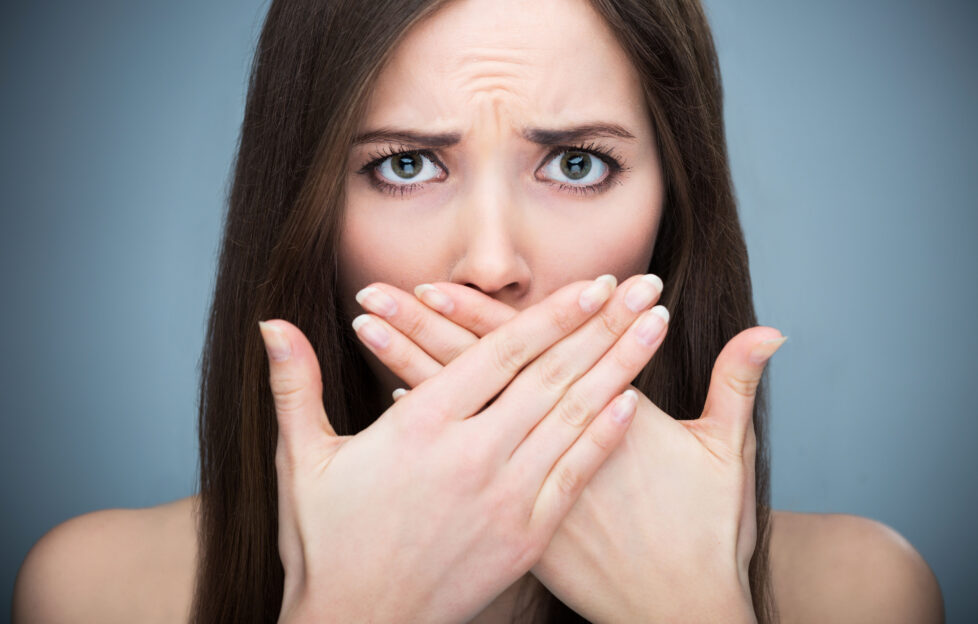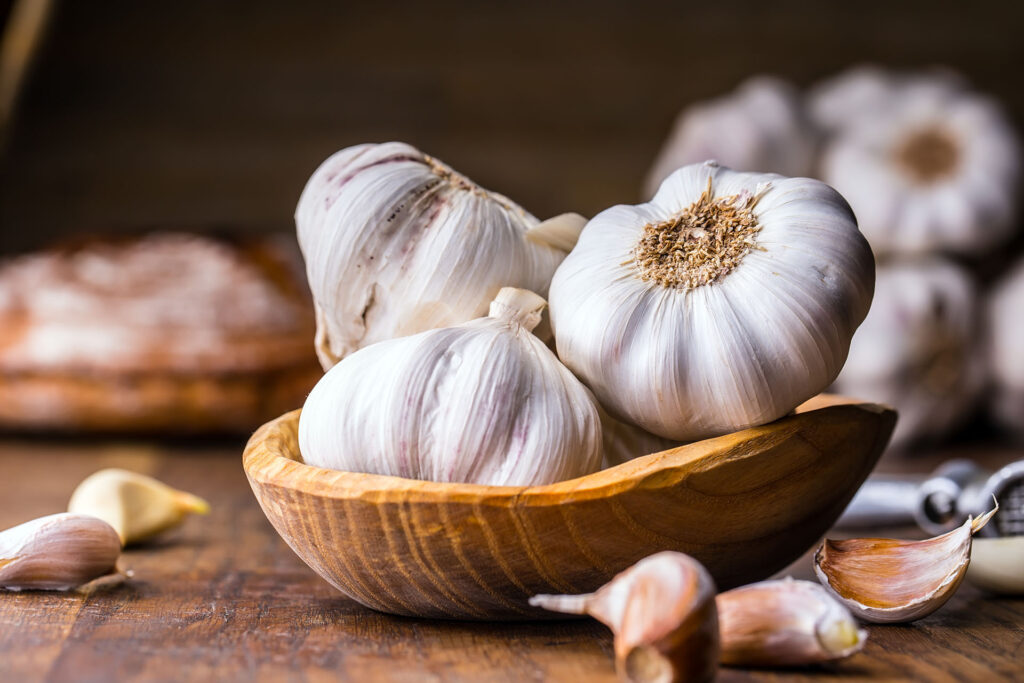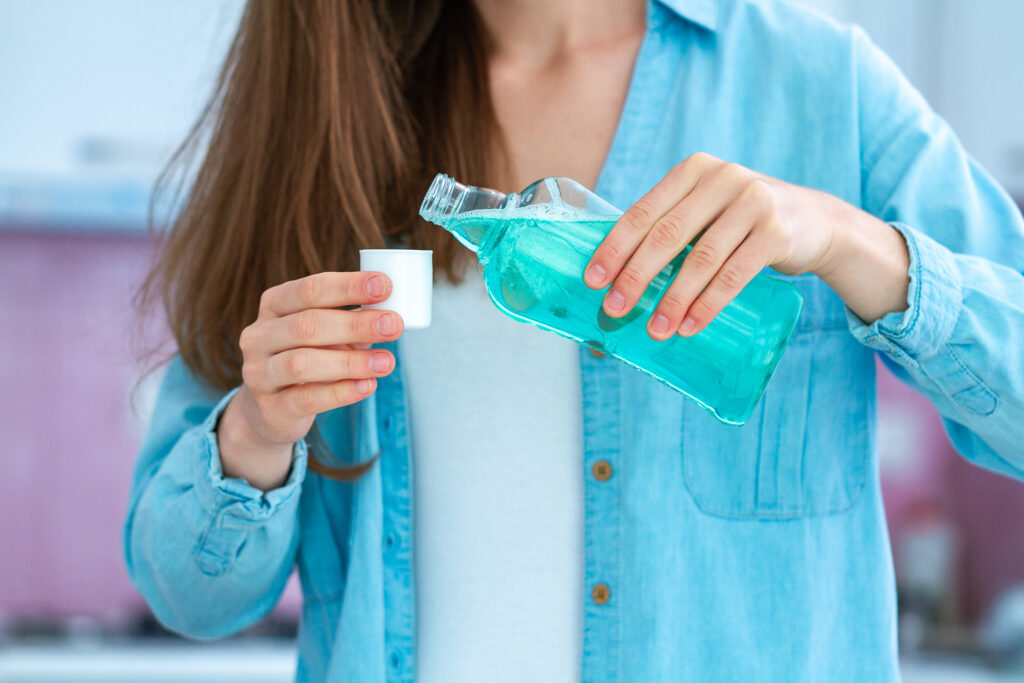Worried About Bad Breath? Cut Out These 7 Foods!

Renata Lainchbury, Lead Hygienist at Quest Dental, reveals the foods you should avoid as well as tips on how to combat smelly breath.
If you suffer with bad breath, it could be down to your diet and what you’re eating. Most people assume that bad breath comes from lack of oral hygiene, and this is partly true, but it can also be caused from certain foods which tend to linger in the mouth, causing a nasty smell that can leave you feeling embarrassed and self conscious.
1 Coffee
As heart-breaking as it is for coffee lovers to hear, unfortunately caffeinated drinks can cause a stale bad breath. This is because coffee contains sulfuric and acidic compounds which can leave that stale like smell on your breath for a long time afterwards. Coffee can also reduce the production of saliva, and we need saliva to naturally clean the mouth and wash away any bacteria which could cause coffee breath to worsen. Furthermore, coffee can also have a drying
effect on the mouth which can increase chances of lingering bad breath. If you cannot compromise your daily coffee, then try to drink plenty of water in between coffees to rinse the mouth out and keep your mouth hydrated.
2 Onion
Onion is a food that is used in many recipes due to its strong and distinctive flavour, however, it is not so great for the breath. Onion contains sulfur compounds which means that distinctive smells are released when they are cut or mashed. This strong sulfur ingredient means that when ingested it can linger in the mouth, on the tongue and between the teeth. I would advise brushing your teeth after eating a meal with onion to ensure that any food particles are removed
before any more sulfuric smells are emitted.
3 Dairy
Dairy can often be a surprise to people, but it’s true that milk can cause bad breath. This is because the natural bacteria from your tongue feeds on the amino acids in milk and cheeses, this then means the odour that is left in your mouth after ingesting can often smell quite foul and unpleasant.
4 Alcohol
Even though it’s a liquid, alcohol can be one of the worst things for bad breath. Notice that when you wake up on a hangover your mouth tastes and smells foul? That is because your body and mouth is dehydrated from the alcohol consumption and this means less saliva production. Alcohol can lead to dry mouth and when your mouth is considerably dry it can promote bacteria to grow which increases the chances of bad breath.
5 Curry
Curry can often cause bad breath due to the number of strong and distinctive ingredients used in the recipe, and these ingredients can often linger in the mouth for hours after. Foods like onion, garlic, spices and more.
6 Fish
Eating fish can often be a contributing factor to bad breath. If you are eating fish with a more fishy smell such as salmon and tuna then most likely you will have dodgy breath afterwards. This is down to a compound in fish called trimethylamines. This tends to linger in the mouth and give off an unpleasant smell.
7 Garlic
It’s fair to assume that most people are aware of garlic breath. It’s pretty hard to escape given that garlic is an ingredient in most things, however, it can often leave that distinctive garlic smell on the breath which can be very strong and unpleasant and can linger for a number of days. Garlic is in the same food family as onion, as it also contains sulphur compounds giving it that strong flavour, so once eaten it can linger in the mouth and between the teeth.
Reneta’s Top Tips For Preventing Bad Breath
1 Maintain a regular oral routine
Maintaining a good oral routine morning and night should help to ease any symptoms of bad breath. It will not completely prevent it and you may have to adjust your diet, but it will work to keep your mouth as fresh as it can be. Using a dentist approved electric toothbrush is recommended to clean the teeth thoroughly and reach all those tricky places that food tends to sit in which creates bacteria. Flossing is also advised along with a mouthwash to further rinse
and wash away any lingering particles. A mouthwash will also help to keep your tongue clean and fresh, as often bad breath can be from a dirty tongue. You may want to look into a specific tool for cleaning your tongue such as a tongue scraper or toothbrush for your tongue.
2 Stay hydrated
Staying hydrated is key for ensuring your breath stays clean and fresh. Often, if we are dehydrated this can lead to dry mouth which means a lack of saliva. Saliva is needed to naturally clean the mouth and wash away any bacteria and food particles from the day, so when this is gone the mouth can remain stagnant and foul breath can form. Try to drink 8 glasses a day, and more so in between meals and coffee breaks.
3 Adjust your diet
If you are noticing that your breath has started to smell, you may want to try and adjust your diet and avoid the foods mentioned above. It may be difficult with things such as coffee and garlic, but trying to cut down or completely remove these from your diet should help to remove any bad mouth odour. If you cannot live without certain foods, try to clean your mouth afterwards using floss, a toothbrush or mouthwash. Also drinking plenty of water should help to keep the mouth clean.
4 Visit your dentist
If you have done the above and you’re still noticing a bad smell, you may want to visit your dental practice and speak to your dentist and hygienist as they may be able to pinpoint the problem. Often, bad breath can be a sign of a cavity, so it’s best to visit the dentist regularly. Register with Quest Dental Care today and start your new smile journey.















